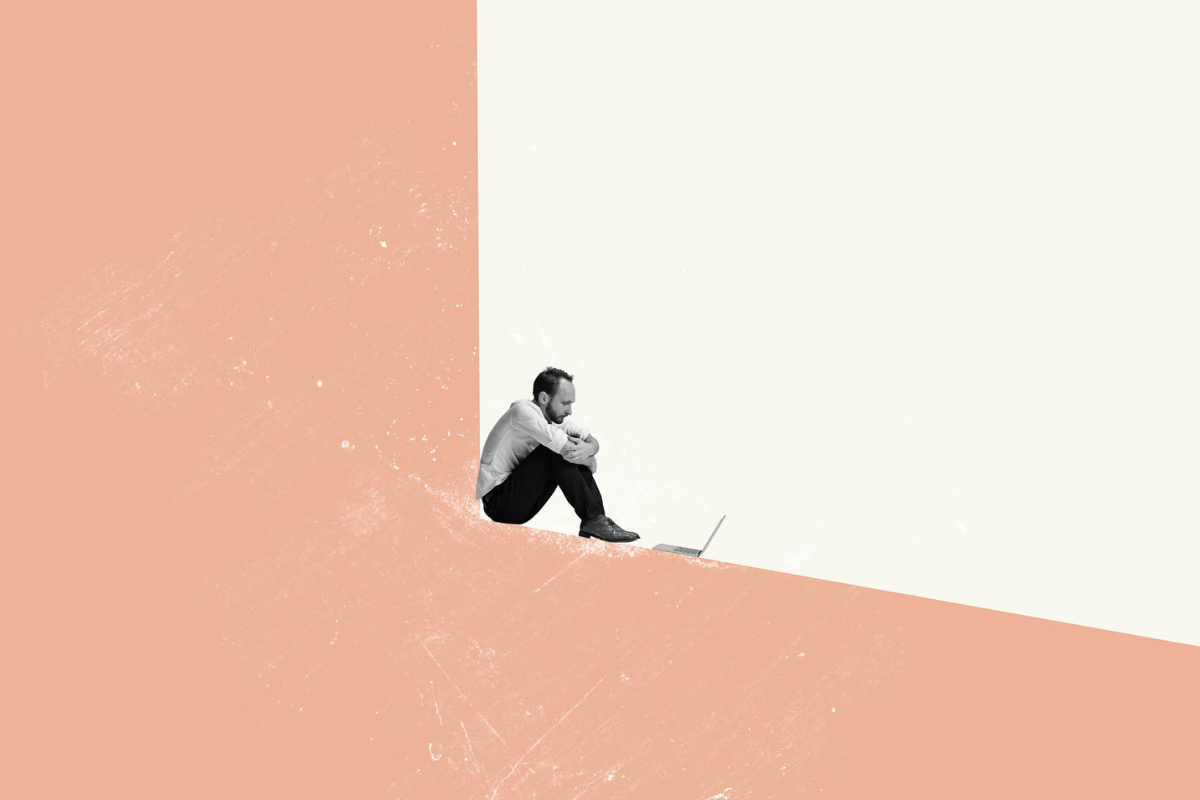How decluttering your work life can offer calm and success

It was a very comedic event that blew my world apart back in 2017. The simple act of stepping on a CD case whilst tidying up became the catalyst that sparked a mini revolution across the world.
At the time, I possessed all the trappings of societal success: a home, a car, financial security and a respectable job title, plus of course high stress, debt and loads of ‘stuff’. Despite accumulating all of that, my core aspiration of traveling was buried underneath. I realized that if my possessions, that I had taken ownership of, could cause me physical pain and hilariously turn me into a cockney Incredible Hulk, then they owned me.
In order to excavate my way toward more agency, I needed to declutter. So on that weekend I made the first step of selling and donating things that didn’t add value to my life. Within a few days, I had recouped £156 (US$197), which allowed me to purchase the first flight from London to Copenhagen and start this odyssey.
Six months later, I had sold virtually everything I ever owned, loosely arranged a sabbatical and said goodbye to home ownership. I had decluttered my world.
Homeless, keyless and most likely jobless, I imagined people thought I had lost the plot. It was the opposite of everything we had been taught, but I was about to find out the power of a ‘less is more’ approach to life.

Clutter was masquerading as valuable work and we were all complicit. Professional minimalism was born.
So off I went around the world, relinquishing more possessions and mental clutter that I had been carrying around. I obtained experiences and growth that would set me up for years, more than any course or learning on the job could ever provide. I identified with the tag of ‘minimalist’.
This act of jettisoning was also supporting communities, charities and the climate in a way that I never thought was possible. I would often get emails from the British Heart Foundation to say that the sale of my donated items contributed to research into heart disease and helped pay for pacemakers. My stuff was saving lives.
But then came the return to ‘real life’. As the sun set on my nomadism, a new career appeared on the horizon and I was reintroduced to a ‘more, more, more’ way of working. Overconsumption, overwork and overwhelm was everywhere. To many, this was normal, but it was too late for me. Similar to Neo in The Matrix, I had taken the red pill and I could see what was actually occurring outside the illusion created by corporate systems.
Clutter was masquerading as valuable work and we were all complicit. Professional minimalism was born.
In order to scale this disruptive minimalist approach into a professional context, I attended fewer meetings, asked more questions and did less, but better work. The result was that I became more focused, more productive and more of an asset. I quickly became a role model.
Less really was becoming more. While I pushed the boundaries on tradition, I was also learning more about our bias toward addition and overcomplexity based on where we were in the hierarchy. Mix that in with a real reluctance to let go and you have your over-engineered, siloed, bureaucratic bloat generating overwork and burnout.
Why we can’t let go
Our identities are forged with the stuff we’ve invested in and, for some, detaching is tough. Rational decision-making gets lost in the dreaded FOMO (fear of missing out) and the stories we tell ourselves. Simplifying requires a level of professional bravery, but without that disruption, nothing changes.
Removing all the clutter from my life exposed me to space and truth, therefore giving me little excuse to not pursue the things I really wanted to. Work can also be like that, as our busyness attachment creates more optics than outcomes, presenting the image of, ‘If I am busy, therefore I must be needed and adding value’. But are we, really?
Forty-five percent of people feel overwhelmed by the volume of meetings they attend and 71 percent of leaders say that meetings are inefficient. Deep down, you probably already knew this.
Forty-five percent of people feel overwhelmed by the volume of meetings they attend and 71 percent of leaders say that meetings are inefficient.
The bottom line is that becoming over-busy is easy to do, lazy even, as we allow other people’s low value priorities to infiltrate our limited resources. That’s not surprising, given it feels instinctive, with our deep-seated origins of survival, to be agreeable to group dynamics.
We would likely miss out on shelter, food and protection if we weren’t, and would therefore be ostracized, left to fend for ourselves against the pitfalls of the wild.
Putting boundaries up in a workplace system still makes us feel like there are potential dangers and risks of exclusion. Those perceived negative consequences lead a lot of us to just avoid saying no entirely, ultimately leading to huge piles of yes.
How busyness is ‘killing’ us
Today, one-in-three people feels overwhelmed by busyness. And while this may feel like it gives us a daily purpose, it’s in fact an illusion that’s killing us – and faster than you think.
Burnout reached record levels in 2022. More than half of us work while on holiday and more people are off sick in the United Kingdom now due to stress than in the last 10 years. There was even a word created in Japanese for ‘death by overwork’: karoshi.
The WHO indicates the volume of deaths by heart disease and stroke caused by overworking across the globe is higher than malaria.
Being a professional minimalist could positively change the way you work forever and more importantly, it could save your life.
We are working more, overwhelmed by increasing demands, what feels like an infinite stream of requests and that feeling of never enough time to do it all, but downing tools is simply not an option. You can throw in all the desktop yoga and wellbeing initiatives you want, but it still won’t decrease the workload.
Strategic abandonment, ruthless prioritization, simplification agenda – call it what you will. It’s all about doing less, but better.
Being a professional minimalist could positively change the way you work forever, and more importantly, it could save your life.